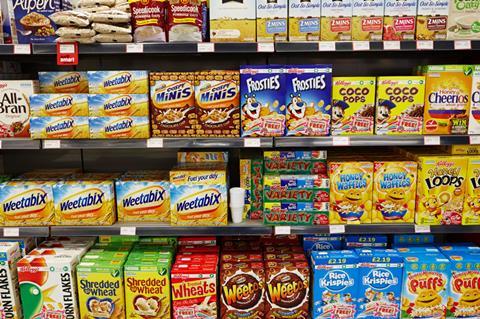
In what could be described as the toughest job interview in the UK, the race to be the next resident of No 10, the leader of the Conservative Party and the country, has resulted in an epic amount of mud-slinging in TV hustings. We saw candidates committing to throw away important policies designed to protect children’s health, declaring them intrusions of the ‘nanny state’.
As candidates completed their speeches, the NHS published the latest set of childhood obesity statistics figures. The data revealed more than one in three year six children in England (37.8%, in fact) are overweight or obese. While we are over the unusually high childhood obesity levels of the Covid-19 lockdown restrictions, this data confirms that we remain on an upward trajectory from pre-pandemic years.
In this context, policies such as the restrictions on advertising and promotion of HFSS products are much needed. Labelling food and drink as ‘good’ or ‘bad’ or taking away personal choice is not the aim. Instead, these policies are vital in ensuring we all have access to food and drink that is higher in fibre, has more fruit & vegetable content and is low in sugar, salt and saturated fat, should we want to. We are currently flooded by the opposite. These policies are not ‘anti-business’. In fact, they support market leadership by providing a level playing field on health.
Given these policies have long been announced, the question is whether companies have done their homework. A snapshot survey of the nutritional profile of a hundred popular products from five major manufacturers published by Action on Salt last week painted a mixed picture. While the majority of products surveyed were deemed ‘less healthy’ under the government’s HFSS model, only two in 20 Danone products fell into this category – in contast with 14 in 20 of Kellogg’s and Unilever’s.
Comparing companies in this way is challenging, as corporate reporting on the proportion of sales volumes and revenue raised by ‘healthier’ products is lacking. As restrictions on HFSS products start to be phased in, this information is not only critical to understand companies’ efforts to support public health but is also a significant issue for their shareholders. Investors need to understand the readiness of businesses to adapt to these rules to mitigate against possible revenue losses.
Although it is in the interest of food manufacturers to be forthcoming with this information, only a few companies are doing so. Since last year, UK-based Premier Foods, AG Barr and Britvic have started to disclose their percentage of non-HFSS sales. Premier Foods has gone even further and committed to double its sales of healthier products by 2030. At a global level, Danone, which reports on sales volumes of healthier products using the European Nutri-Score and Australian Health Star Rating models, is the shining exception to the rule.
It may come down to investors in these companies being more robust in exercising their shareholding rights to drive the type of change needed. As illustrated by the filing of a shareholder resolution at Unilever last year, which led to the company making market-leading commitments, investors can drive positive impact across the sector in a short timescale. Ultimately, shareholders may well be the key players in driving the type of market transformation that ‘nanny’ has failed to deliver to date.



















No comments yet